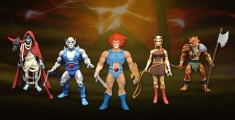
I get a lot of Facebook invites, and while I appreciate the nod, they always immediately get trashed. While Myspace was like the Hot Topic of the internet, a mostly harmless (except on the eyes) and amusing flavor of the week, Facebook is more like the Wal-Mart or other similarly disturbing sinister large corporate-type entity that exists solely to become as all-encompassing as it can at the expense of everyone else. At the expense of your privacy and co-dependence. All the while, becoming a household name with a positive image and warm feelings associated.
Here are two articles that articulate very well my thoughts on Facebook. I’ve abridged them slightly, but please feel free to follow the links and read them in their entirety.
Ten Reasons You Should Quit Facebook | Link
10. Facebook’s Terms Of Service are completely one-sided. Let’s start with the basics. Facebook’s Terms Of Service state that not only do they own your data (section 2.1), but if you don’t keep it up to date and accurate (section 4.6), they can terminate your account (section 14). You could argue that the terms are just protecting Facebook’s interests, and are not in practice enforced, but in the context of their other activities, this defense is pretty weak. As you’ll see, there’s no reason to give them the benefit of the doubt. Essentially, they see their customers as unpaid employees for crowd-sourcing ad-targeting data.
9. Facebook’s CEO has a documented history of unethical behavior. From the very beginning of Facebook’s existence, there are questions about Zuckerberg’s ethics. According to BusinessInsider.com, he used Facebook user data to guess email passwords and read personal email in order to discredit his rivals. These allegations, albeit unproven and somewhat dated, nonetheless raise troubling questions about the ethics of the CEO of the world’s largest social network. They’re particularly compelling given that Facebook chose to fork over $65M to settle a related lawsuit alleging that Zuckerberg had actually stolen the idea for Facebook.
8. Facebook has flat out declared war on privacy. Founder and CEO of Facebook, in defense of Facebook’s privacy changes last January: “People have really gotten comfortable not only sharing more information and different kinds, but more openly and with more people. That social norm is just something that has evolved over time.” More recently, in introducing the Open Graph API: “… the default is now social.” Essentially, this means Facebook not only wants to know everything about you, and own that data, but to make it available to everybody. Which would not, by itself, necessarily be unethical, except that …
7. Facebook is pulling a classic bait-and-switch. At the same time that they’re telling developers how to access your data with new APIs, they are relatively quiet about explaining the implications of that to members. What this amounts to is a bait-and-switch. Facebook gets you to share information that you might not otherwise share, and then they make it publicly available. Since they are in the business of monetizing information about you for advertising purposes, this amounts to tricking their users into giving advertisers information about themselves. This is why Facebook is so much worse than Twitter in this regard: Twitter has made only the simplest (and thus, more credible) privacy claims and their customers know up front that all their tweets are public. It’s also why the FTC is getting involved, and people are suing them (and winning). Check out this excellent timeline from the EFF documenting the changes to Facebook’s privacy policy.
6. Facebook is a bully. When Pete Warden demonstrated just how this bait-and-switch works (by crawling all the data that Facebook’s privacy settings changes had inadvertently made public) they sued him. Keep in mind, this happened just before they announced the Open Graph API and stated that the “default is now social.” So why sue an independent software developer and fledgling entrepreneur for making data publicly available when you’re actually already planning to do that yourself? Their real agenda is pretty clear: they don’t want their membership to know how much data is really available. It’s one thing to talk to developers about how great all this sharing is going to be; quite another to actually see what that means in the form of files anyone can download and load into MatLab.
5. Even your private data is shared with applications. At this point, all your data is shared with applications that you install. Which means now you’re not only trusting Facebook, but the application developers, too, many of whom are too small to worry much about keeping your data secure. And some of whom might be even more ethically challenged than Facebook. In practice, what this means is that all your data – all of it – must be effectively considered public, unless you simply never use any Facebook applications at all. Coupled with the OpenGraph API, you are no longer trusting Facebook, but the Facebook ecosystem.
4. Facebook is not technically competent enough to be trusted. Even if we weren’t talking about ethical issues here, I can’t trust Facebook’s technical competence to make sure my data isn’t hijacked. For example, their recent introduction of their “Like” button makes it rather easy for spammers to gain access to my feed and spam my social network. Or how about this gem for harvesting profile data? These are just the latest of a series of Keystone Kops mistakes, such as accidentally making users’ profiles completely public, or the cross-site scripting hole that took them over two weeks to fix. They either don’t care too much about your privacy or don’t really have very good engineers, or perhaps both.
3. Facebook makes it incredibly difficult to truly delete your account. It’s one thing to make data public or even mislead users about doing so; but where I really draw the line is that, once you decide you’ve had enough, it’s pretty tricky to really delete your account. They make no promises about deleting your data and every application you’ve used may keep it as well. On top of that, account deletion is incredibly (and intentionally) confusing. When you go to your account settings, you’re given an option to deactivate your account, which turns out not to be the same thing as deleting it. Deactivating means you can still be tagged in photos and be spammed by Facebook (you actually have to opt out of getting emails as part of the deactivation, an incredibly easy detail to overlook, since you think you’re deleting your account). Finally, the moment you log back in, you’re back like nothing ever happened! In fact, it’s really not much different from not logging in for awhile. To actually delete your account, you have to find a link buried in the on-line help (by “buried” I mean it takes five clicks to get there). Or you can just click here. Basically, Facebook is trying to trick their users into allowing them to keep their data even after they’ve “deleted” their account.
2. Facebook doesn’t (really) support the Open Web. The so-called Open Graph API is named so as to disguise its fundamentally closed nature. It’s bad enough that the idea here is that we all pitch in and make it easier than ever to help Facebook collect more data about you. It’s bad enough that most consumers will have no idea that this data is basically public. It’s bad enough that they claim to own this data and are aiming to be the one source for accessing it. But then they are disingenuous enough to call it “open,” when, in fact, it is completely proprietary to Facebook. You can’t use this feature unless you’re on Facebook. A truly open implementation would work with whichever social network we prefer, and it would look something like OpenLike. Similarly, they implement just enough of OpenID to claim they support it, while aggressively promoting a proprietary alternative, Facebook Connect.
And an EFF update on Connections:
EFF: Six Things You Need to Know About Facebook Connections | Link
“Connections.” It’s an innocent-sounding word. But it’s at the heart of some of the worst of Facebook’s recent changes.Facebook first announced Connections a few weeks ago, and EFF quickly wrote at length about the problems they created. Basically, Facebook has transformed substantial personal information — including your hometown, education, work history, interests, and activities — into “Connections.” This allows far more people than ever before to see this information, regardless of whether you want them to.Since then, our email inbox has been flooded with confused questions and reports about these changes. We’ve learned lots more about everyone’s concerns and experiences. Drawing from this, here are six things you need to know about Connections:
- Facebook will not let you share any of this information without using Connections. You cannot opt-out of Connections. If you refuse to play ball, Facebook will remove all unlinked information from your profile.
- Facebook will not respect your old privacy settings in this transition. For example, if you had previously sought to share your Interests with “Only Friends,” Facebook will now ignore this and share your Connections with “Everyone.”
- Facebook has removed your ability to restrict its use of this information. The new privacy controls only affect your information’s “Visibility,” not whether it is “publicly available.”Explaining what “publicly available” means, Facebook writes:
“Such information may, for example, be accessed by everyone on the Internet (including people not logged into Facebook), be indexed by third party search engines, and be imported, exported, distributed, and redistributed by us and others without privacy limitations.”
- Facebook will continue to store and use your Connections even after you delete them. Just because you can’t see them doesn’t mean they’re not there. Even after you “delete” profile information, Facebook will remember it. We’ve also received reports that Facebook continues to use deleted profile information to help people find you through Facebook’s search engine.
- Facebook sometimes creates a Connection when you “Like” something. That “Like” button you see all over Facebook, and now all over the web? It too can sometimes add a Connection to your profile, without you even knowing it.
Facebook sometimes creates a Connection when you post to your wall. If you use the name of a Connection in a post on your wall, it may show up on the Connection Page, without you even knowing it. (For example, if you use the word “FBI” in a post).


























Comments
3 Comments9:9
May 6, 2010Great post, I think I might tweet this and Facebook it to all my friends.
Wanna play some Farmville?
Darren!
May 6, 2010Farmville addiction is a whole separate evil issue. And I have no problem with Twitter, because it is short form, doesn’t own your soul, and isn’t run by someone with seemingly zero conscience.
JacksonKnife
May 10, 2010Hahahaha… Farmville…